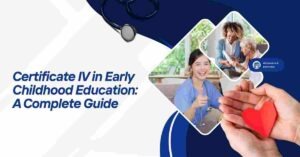IT Courses for Beginners: Start Your Tech Journey Today
Introduction
In today’s digital-first world, Information Technology (IT) is no longer just a career choice—it’s a gateway to endless opportunities. Whether you want to become a software developer, cybersecurity analyst, data scientist, or just build foundational tech skills, getting started with the right IT courses is essential. This guide provides an in-depth look into IT courses for beginners, especially for those with little to no prior experience. You’ll discover why IT skills are in high demand, explore course options across various platforms, and receive actionable steps to start your IT learning journey today.
Why Choose IT as a Beginner?
Choosing IT as a beginner opens the door to lucrative job opportunities, flexibility, and career security. IT professionals are essential in almost every sector—from healthcare and finance to education and entertainment.
Benefits of Pursuing IT Courses as a Beginner:
High demand across industries
Flexible career paths (remote, freelance, full-time)
Entry-level roles with attractive salaries
Opportunity for lifelong learning and advancement
Low barrier to entry with many free or low-cost courses
Who Should Take Beginner IT Courses?
Beginner IT courses are ideal for:
High school graduates exploring career options.
College students seeking supplemental skills.
Career changers moving into tech from unrelated fields.
Entrepreneurs and business owners wanting to understand basic tech.
Stay-at-home parents or retirees looking to restart or redirect careers.
No coding background? No problem. These courses are tailored to absolute beginners and require only basic computer literacy.
Top Platforms Offering Beginner IT Courses
Several e-learning platforms offer structured, affordable, and even free IT courses for beginners. Here are some of the top platforms:
1. Coursera
Offers beginner IT certifications in collaboration with top universities like Stanford, Duke, and Google.
Google IT Support Professional Certificate
IBM IT Fundamentals for Cybersecurity
2. edX
Partnered with Harvard, MIT, and Microsoft to provide free-to-audit beginner courses.
Introduction to Computer Science
IT Fundamentals for Business Professionals
3. Udemy
Thousands of beginner-level IT courses at affordable rates, with frequent discounts.
IT Fundamentals for Beginners
Networking Basics
4. LinkedIn Learning
Excellent for business professionals looking to reskill in IT.
CompTIA IT Fundamentals (ITF+)
Understanding Operating Systems
5. Codecademy
Great for interactive coding experiences.
Learn the Command Line
Computer Science 101
Types of Beginner IT Courses
1. IT Fundamentals
Ideal for those who want to explore different areas of IT before committing to a specific field.
Topics include:
Hardware and software basics
Operating systems
File management
Internet and networking basics
Recommended course:
CompTIA IT Fundamentals (ITF+)
2. Introduction to Programming
Start with beginner-friendly languages such as Python, JavaScript, or Scratch.
What you’ll learn:
Writing basic scripts
Understanding variables and loops
Debugging errors
Creating simple programs
Recommended courses:
Python for Everybody (Coursera)
Introduction to JavaScript (Codecademy)
3. Networking Basics
Networking skills are essential for IT support and cybersecurity roles.
Covered concepts:
IP addressing
Routing and switching
LAN/WAN/Wi-Fi configurations
DNS, DHCP, and firewalls
Recommended course:
Cisco’s Introduction to Networks (via Cisco Networking Academy)
4. Cybersecurity Basics
With cybercrime on the rise, there’s growing demand for cybersecurity experts.
Beginner topics include:
Cyber threats and vulnerabilities
Password hygiene
Network security principles
Basics of encryption and authentication
Top beginner course:
Introduction to Cybersecurity (edX or Cisco)
5. Cloud Computing Essentials
A foundational skill for modern IT professionals.
You will learn:
Basics of cloud architecture
SaaS, PaaS, IaaS models
Using platforms like AWS, Azure, and Google Cloud
Suggested course:
AWS Cloud Practitioner Essentials (Amazon)
6. Data Basics
Understanding data is crucial in IT roles like analytics, development, and business intelligence.
What’s covered:
Basics of data structures
Databases and SQL
Data types and cleaning
Data visualization tools (Excel, Tableau)
Popular beginner course:
Data Science Foundations (IBM via Coursera)
7. IT Support and Helpdesk Skills
The most common entry-level IT job.
Skills covered:
Troubleshooting computer issues
Installing software and drivers
Basic networking
Customer service communication
Recommended course:
Google IT Support Professional Certificate
Beginner IT Certifications You Can Earn
Certifications help prove your knowledge to potential employers. Some beginner-friendly options include:
CompTIA IT Fundamentals (ITF+)
Google IT Support Certificate
Microsoft Technology Associate (MTA)
AWS Certified Cloud Practitioner
Cisco Certified Technician (CCT)
These can often be obtained in under 6 months.
Step-by-Step Guide: How to Get Started with IT Courses
Step 1: Assess Your Interests
Do you prefer fixing computers, writing code, or analyzing data? Knowing your interest will help pick the right course.
Step 2: Choose a Platform
Based on pricing, learning style, and content.
Step 3: Enroll in a Beginner Course
Start with free or low-cost courses before committing to advanced certifications.
Step 4: Practice Your Skills
Use online labs, simulators, or set up your own virtual environment to practice.
Step 5: Join Online IT Communities
Engage with learners and professionals on Reddit, Stack Overflow, or LinkedIn.
Step 6: Earn Certifications
Begin with entry-level certs that align with your career goals.
Step 7: Apply for Internships or Entry-Level Jobs
Build real-world experience through internships, freelance gigs, or volunteer work.
Top Free IT Courses for Beginners
| Platform | Course Title | Duration | Cost |
|---|---|---|---|
| IT Support Certificate | 4-6 months | Free trial | |
| Harvard via edX | CS50x: Intro to Computer Science | 12 weeks | Free |
| Microsoft Learn | Azure Fundamentals | Self-paced | Free |
| Cisco | Cybersecurity Essentials | 20 hours | Free |
| AWS | Cloud Practitioner Essentials | 6 hours | Free |
Best Paid IT Courses for Beginners (Under $100)
IT Fundamentals for Beginners – Udemy
Python Crash Course – Coursera (University of Michigan)
Cybersecurity Basics – LinkedIn Learning
Data Analytics Foundations – IBM SkillsBuild
Introduction to Networks – Cisco Academy
What Skills Will You Learn from Beginner IT Courses?
Problem-solving & troubleshooting
Basic computer and hardware knowledge
Understanding of common operating systems
Introductory coding (e.g., Python, HTML)
Knowledge of networking and security principles
Understanding cloud and data basics
These skills lay the groundwork for specialization in IT support, cybersecurity, software development, or data science.
Entry-Level Jobs You Can Get After Beginner IT Courses
IT Support Specialist
Helpdesk Technician
Junior Web Developer
Computer Technician
Network Support Assistant
Cloud Support Intern
Data Entry and Reporting Assistant
Most of these roles have starting salaries in the range of $40,000–$60,000 per year in the United States.
Success Tips for Beginner IT Learners
Consistency is key – Set weekly learning goals.
Build a portfolio – Showcase small projects or troubleshooting experience.
Join tech communities – For help, advice, and job leads.
Don’t fear failure – Mistakes are part of learning.
Stay updated – IT trends evolve fast; stay current.
Common Myths About Learning IT
1 Myth : You need to be good at math
Truth: Basic arithmetic is enough for most beginner IT roles.
2 Myth : IT is only for young people
Truth: Many learners start IT careers in their 30s, 40s, or beyond.
3 Myth : IT requires a college degree
Truth: Certifications and practical skills are more important in many cases.
Conclusion
Starting your journey with IT courses for beginners is one of the smartest career moves you can make in today’s economy. With access to free and affordable learning resources, supportive communities, and a range of job opportunities, anyone—regardless of background—can break into tech. Whether your goal is a career change, side hustle, or lifelong learning, the path to success starts with one beginner course.
Read More: Free IT Certification Courses: Learn In-Demand Tech Skills Without Paying…







